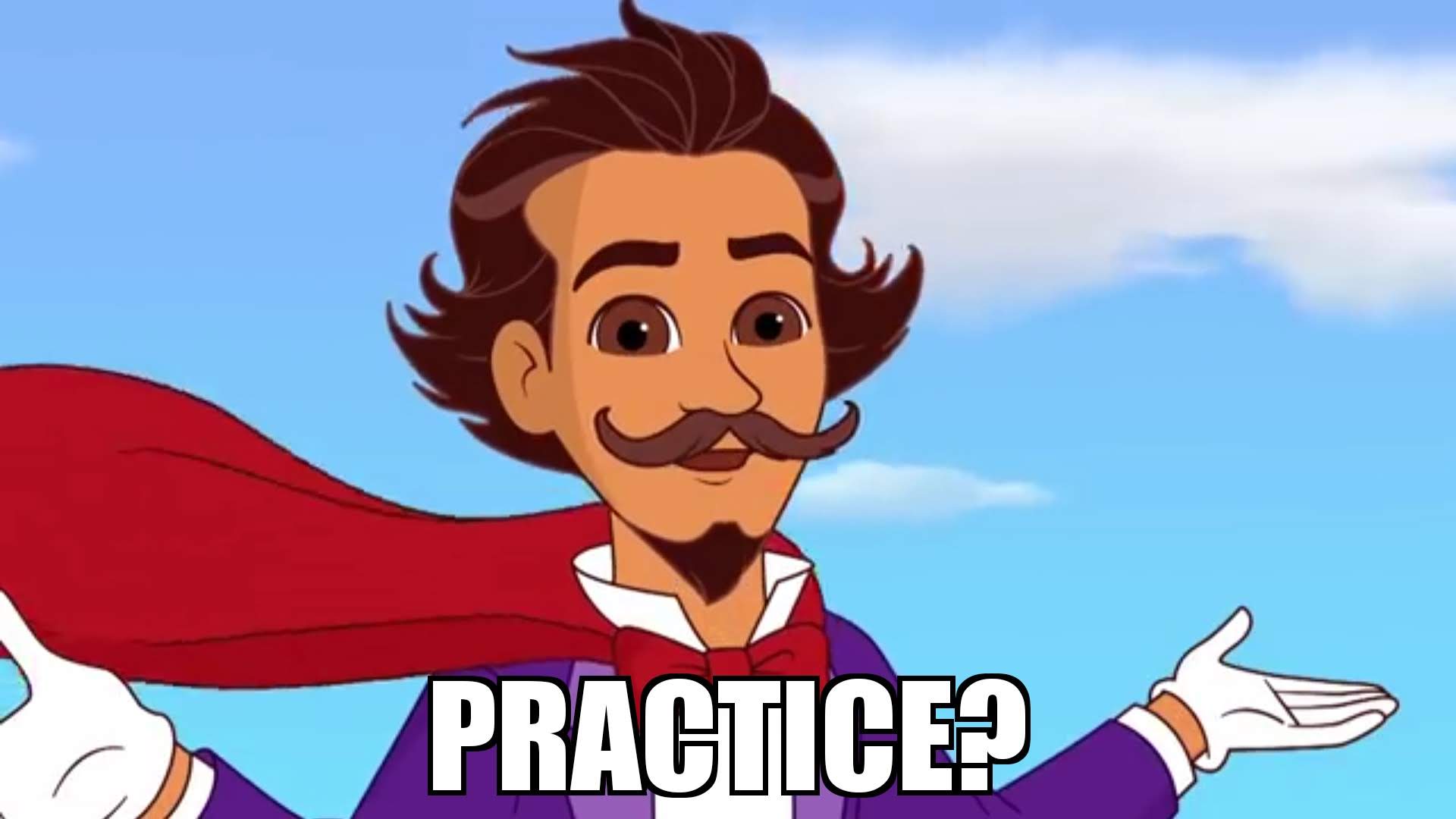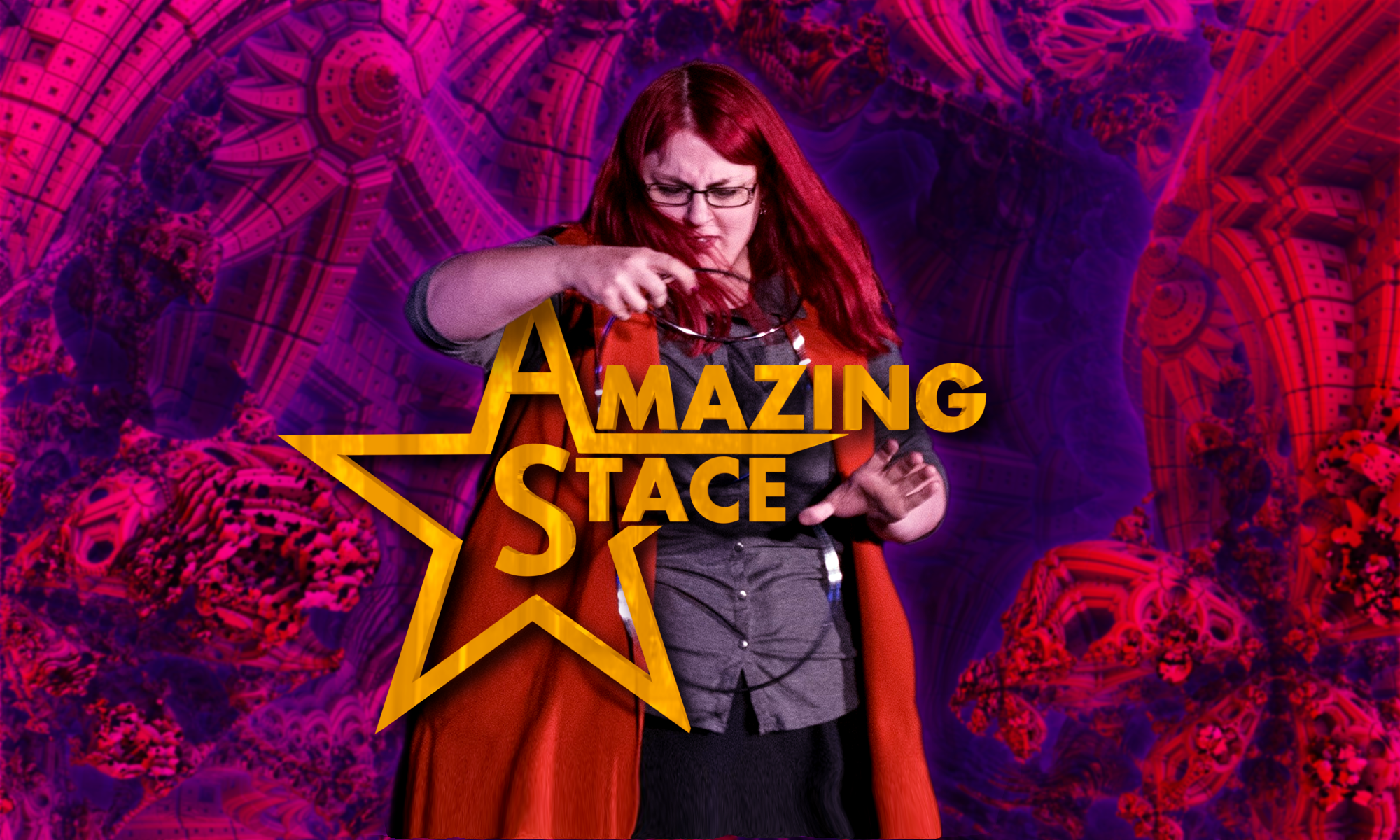This is going to pull together a number of threads, so forgive me if it takes a while to make any kind of definitive statement.
In my last post I mentioned the concept of magician’s ego, the fact that when presenting what appears to be a strange or coincidental occurrence, the natural urge is to fabricate some narrative in which there is zero doubt that the magician is the root cause, even if the power of the effect is in the appearance that the magician does nothing.
But there’s a lot more to it than that.
Normally I base my articles on the only source I can trust¹, but I do talk to other magicians (and indeed listen to other magicians) and collect together their opinions, their knowledge and, their insight. I look for patterns in their magical thinking, looking for both concensus and contrast, because there is a lot to be learned from both.
And if you’ll indulge me just this once, I think there’s something fascinating which many people have noticed but no one wants to accept.
We’re all kind of a bit broken.
Derren Brown’s Apocalypse was a television programme in 2012, during his period of highly experimental programming, where ordinary people were unknowingly included in what could be disingenuously described as epic scale pranks. Several of these such as Hero at 30,000 Feet and the aforementioned Apocalypse engineered circumstances in which a formerly timid person, after a sequence of contrived encounters, had an opportunity to take a decisive brave action that they previously would have been unable to face.
Apocalypse was possibly the most ambitious of these, where the unwitting participant, having been drip fed fake news stories about a strange asteroid on a collision course with the Earth, wakes up for the finale in a closed off compound in an uninhabitable wasteland alongside several actors playing other survivors being descended upon by hordes of literal zombies baying for their flesh.
Some people think the whole thing was fake² but that’s unimportant. What I want to focus on is a moment from the first ten minutes or so, before the experiment even begins, when Derren is trying to get the measure of his victim volunteer participant. After interviewing the young man’s family Derren goes to his bedroom and looks on his shelves to see a book of card tricks. This moves Derren because, in his words:
You get into magic really because you want to impress people and you only want to impress people if you don’t feel impressive yourself³.
Shackled by Motivation
A year earlier in 2011 Master Payne gave a PEP talk at the Jeff McBride Mystery School Magic and Meaning Conference about what separates professional magicians from amateurs, and also how many people use hack lines to insult the audience for a cheap laugh.
In case you’ve never heard of him, Master Payne is a comedy magician whose stage persona is very well suited for the gigs he performs at renaissance faires, where he perfectly looks the part as a town crier like figure. Completely disconnected from this he gained notoriety amongst magicians for his routine The World’s Most Expensive Coin In Bottle, which takes a quick closeup trick and expands it into a 15 minute lecture on the deceptive advertising employed in the sale of magic tricks, and the inherent disappointment this can lead to. His PEP talks are well liked not only for their great insight but also because he is an expert of comedic powerpoint presentations, somewhat akin to those of Dave Gorman, but with a laser focus on skewerring to the heart of magical discourse.
Most importantly, in the talk on professionalism, there’s a line in there which had a great impact on me because of how closely it mirrored what Derren Brown said in Apocalypse. Master Payne quotes Max Maven thusly:
The only way to become a good magician is ro overcome why you became a magician in the first place.
On its own this probably seems a little bizarre, but in the context of Derren’s quote it starts to bring something into sharp focus, which is a lot of people become magicians to fulfil a personal need, but that personal need never goes away, and as such holds them back in their performance.
Is there another way?
One day I was walking through London with Fay Presto⁵, on route from The Magic Circle to Soho House, and she said that she was trying to mentor some successors. I briefly assumed she meant me but this illusion was very quickly dissolved when she went on to say that magic, as a performance art, consists of 2 parts. To paraphrase I’ll refer to them as Craft and Charisma.
Craft is the knowledge and physical skills to handle clever props in a deceptive way, enact the sleight of hand and subterfuge required to successfully achieve the impossible in the eyes of the audience.
Charisma on the other hand, is the ability to talk to the audience in a way that makes the performer appear confident but not arrogant. Engaging but not overpowering. Inviting but not needy. Likeable but not desperate.
In other prefessions these are referred to as hard skills and soft skills. People assume that hard and soft translates to difficult and easy, when in fact they mean something more like concrete and nuanced, or physical and psychological.
At the time she was regularly performing close-up magic in a high end London nightclub called The Box, where she had seen other close-up performers fail to engage with the audience in such a loud busy environment, and Fay’s hypothesis was such:
The world is full of people with zero people skills trying desperately to hone their sleight of hand to a degree where they can become famous, when a far better prospect is to take someone who already has the people skills and just teach them some mid level magic tricks.
In her search for the next generation, Fay wasn’t mentoring magicians. She was teaching magic tricks to nightclub waitresses. The waitresses already knew how to handle busy loud environments, get people’s attention, engage with strangers, and make pleasant small talk when required. Compared to that a double lift and a false count are a piece of piss.
This was a total inversion of the trend noticed by Master Payne and Derren Brown, in which people with little to no charisma, desperate to stand out, see magic as their silver bullet fast track to being the life of the party.
That said it felt kind of wrong, and not just because one of the greatest magicians of our generation was focusing her efforts on people who hadn’t been going it alone trying to learn the craft themselves (like myself).
Rather it seemed misplaced to expend so much effort on people who, from the sound of it, would never have even thought to learn magic without her intervention. Of course on further reflection this was quite a selfish thought because it all span from the place of having expended a great amount of self-directed effort towards a personal desire, almost certainly seeded by a desire to be more personable to others, and my instinctive distaste was just me once again butting up against the upsetting truth that some people are just likeable and never feel the need to prove themselves with tricks or facts or any of the solutions presented as the missing piece of making friends and influencing people.
This attitude is generational, crystallized and purified by magicians learning how to be whole from magicians who learned their craft to become whole. Of course we think magic is the secret to charisma, we were told it by people who themselves learned magic as a substitute for charisma.
There must be a better way.
The Blind Leading the Blind
In 2015 I visited a large number of brick and mortar magic stores on a road trip around the UK. As I have mentioned before I didn’t quite manage to make it to all of them. One close to my heart and indeed my hometown is Magick Enterprises in which I unknowingly witnessed what I think may have been both part of the problem and part of the solution.
The chap who runs the store has been selling magic for over 40 years and when he started he was what’s known as a svengali pitch man. A svengali deck is a special deck of cards which can be used to perform all kinds of miracles with little to no sleight of hand. I don’t think it’s particularly revealing to expose that fact because that’s how they have been sold for over a hundred years. Any enterprising individual with the right know-how can take 27 decks of cards and reassemble them with a little arts and crafts into 27 svengali decks. One of these can then be demonstrated on a market stall for 8 hours a day with the promise that anyone who purchases the deck will be able to perform all these miracles themselves. This is the life of the pitchman, promising the first step to fame and fortune in the performing arts for £8.99⁶. This is the blight I have been illustrating thus far, the false promises of magic as a social lubricant, a simple secret to unlock a complex desire.
But then after showing us the svengali pitch that started his career, he allowed us to look in the backroom of the shop, in which he displayed some ephemera from his other work, including helping an artist safely re-enact a human sacrifice in which they were apparently burned alive on a pyre. After reminiscing he said this:
There’s a lot of interesting things happening in magic far away from walking around tables doing card tricks.
That is the crux of this entire gordian knot.
Picture a Magician
One of the earliest things I commented on in this blog is the lack of diversity in magic, and at the time I mentioned that if you ask someone to describe a magician, you’re basically going to get this guy:

Maybe with a top hat.
At the time I thought that the answer to the diversity problem in magic is that people need to be describing essentially the same thing but different genders and ethnicities, and I still think thats important. But I now think that there was another problem staring me in the face the whole time and I never quite saw it.
When you see magicians, almost all of them enbody aspirational character archetypes. From the suave suited socialite working tables at a party to the street fashion youths entertaining strangers in public on televsion, from intellectual bon vivants to learned experts in psychology, martial arts, body language, or card cheating. All prominent modern magical archetypes are that of people who have elevated themselves above the fold, aspirational figures who must be listened to and respected.
Which is why magic as a pursuit is primarily of interest to people who lack all of that.
But if they called them Sad Meals no one would buy them⁷
I can hear the sound of papers being jostled, muttering voices. Am I really to suggest that the way to fix egocentric magic is to promote magicians who appear pitiable, unpersonable, dishevelled, unlikeable, awkward, nervous, guileless, unfashionable, ugly, unfit, pathetic, stupid, and in all senses generaly unenviable?

But wouldn’t that destroy the public perception of magic, meaninging no one would want to become a magician at all and the entire artform would wither and die?
Not necessarily.
¹ My source is I made it the fuck up.
² Well obviously it was fake, it was a fake apocalypse, but people think it was a fake fake apocalypse and the participant actually knew it was bullshit the entire time and clever editing removed all the moments of visible doubt.
³ This is kind of ironic considering for years magic in this country was considered the neediest, most cringe worthy performance art a person could invest time in. If you’re not from the UK, think of all the jokes about the tryhard poser who takes their guitar to parties. Here those jokes are made about magicians.
⁴ I wasn’t there but there was a weird glitch I found where some of the recorded PEP talks from many years’ conferences were publicly viewable if you knew where to look. If you want to see the talk, it’s here and is complemented nicely by the talk the following year about why people get into and out of magic.
⁵ I don’t get many opportunities to drop names so when I can, I try to make it count.
⁶ Obviously adjust this for inflation. At the time of writing a svengali deck can be found for anything from £7.99 to £22 depending on whether you want fancy cards or something special. £8.99 for a handmade deck seems pretty cheap actually.
⁷ This is a quote from an episode of Pinky and the Brain, of course referencing the world famous McDonald’s Happy Meal. Ironically however, Burger King later released a range of #FeelYourWay meals to parody this concept, with meals to represent sadness, excitement, anger and indifference.
